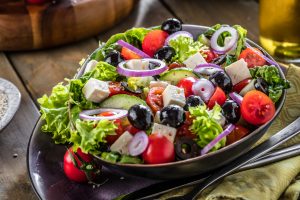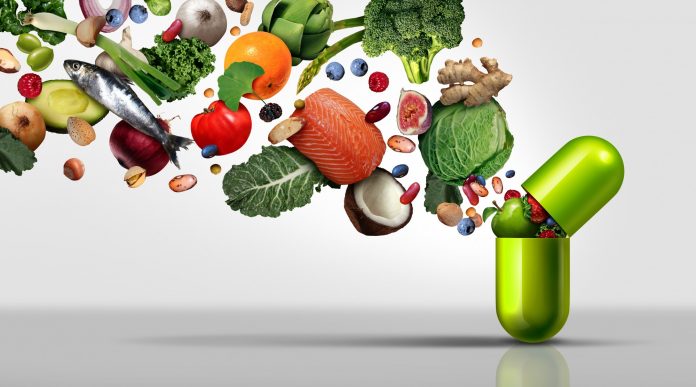In this month’s issue of Retail Pharmacy magazine, we take a look at the role of vitamin and mineral supplements (VMS) in supporting mood, anxiety and stress management.

Advanced Accredited Dietitian Dr Tim Crowe says a nutritious diet is one of the fundamentals in managing mood and mental health.
“This is not just good for your body, it’s good for your brain and mental health, too,” he said. “A healthy diet is linked with better stress management, concentration and improved mental health.”
Dr Crowe continued: “How food and mood are related is a two-way street.
“What you eat can affect your mood, but your mood also influences what you choose to eat. You’re more likely to make positive food choices when you’re in a good headspace. Healthy eating habits for good mental health can be summed up with two pieces of advice: eat plenty of vegetables, fruits, wholegrains, fish and seafood; and have less red meat and less highly processed foods and added sugars.”
While diet is fundamental to physical and mental health, Dr Crowe says it’s important to realise that “diet isn’t the cure for stress and anxiety”, which “are generally related to what is happening around and inside of us, and small amounts can be good”.
“But good nutrition can help in keeping stress and anxiety under control.”
Dr Crowe says the key nutrients associated with managing mental health – “where there is research to support a benefit” – are vitamin D (from the sun), folate (green, leafy vegetables), vitamin B12 (most animal foods), magnesium (wholegrains, leafy green vegetables and legumes), vitamin C (citrus fruits) and omega-3 fatty acids from fish such as salmon.
Community Pharmacist and Master Herbalist Gerald Quigley says that while many people know what may constitute a healthy diet, another key factor is that a healthy diet is related to the individual, and when providing general advice it’s important to remember that everyone has different needs.
“Every single [person] is different,” he said. “Everyone has a different interpretation of what a healthy diet for them is.”
He underscores the importance of getting the basics right: protein and healthy fats, vegetables, and some fruit.
“Basic nutrition says… have a good source of protein because you need that for core strength,” he said. “You need healthy fats like avocado and extra virgin olive oil, and oily fish because you need the omega-threes. And you need more vegetables and [some] fruit. All these things in a sensible portion size.”
Addressing the role of VMS, Dr Crowe said: “Because VMS contain a wide range of nutrients, they can help ‘top up’ a diet that isn’t as healthy as it could be. If someone is eating a lot of highly processed foods and not many fruits, vegetables and wholegrains, this could indicate that a supplement may help. Though always, it needs to go back to improving eating habits along with this.”
Commenting on VMS, Mr Quigley says that given stress plays a major role in exacerbating issues with anxiety and low mood, “starting the day with something sensible from a stress perception” is recommended.
“My go-to herb is ginseng, which is… an adaptogen,” he said. “It helps an individual adapt to the stressors that they confront across the day. Ginseng settles the adrenal response, so that you’re not overwhelmed.”
However, Mr Quigley warns that, as with any VMS, ginseng may still have some limitations and is not a quick fix.
“It’s only part of a package of things that help the body cope with stress, anxiety… and other mental health issues,” he said.
“But stress leading to anxiety is something that eating correctly, getting adequate exercise, sufficient sleep, and perhaps adding an adaptogenic herb and a multivitamin [may help] settle down.”
A popular topic of conversation relating to nutrition and mental health has been around gut health.
“The gut has a two-way communication link with the central nervous system and brain,” Dr Crowe said. “We call this the gut-brain axis. Healthy eating means a well-fed and more diverse gut microbiome, and this is known to affect our mental health directly.
“Fruits, vegetables, wholegrains and legumes provide us with prebiotic fibre, which supports a healthy gut microbiome. These same foods also give us a wide range of vitamins, minerals and antioxidants to support brain health.”
When it comes to probiotic supplements, Dr Crowe says human clinical trials involving these “appear to demonstrate a positive improvement in psychological symptoms related to depression, anxiety and stress”.
Addressing the role of pharmacists in this space, Dr Crowe says that while diet plays a key role, “stress and anxiety have many causes” and may not always be nutrition-related, so “any advice around VMS given in the context of such nutrients is only useful if someone’s diet is generally poor and they’re addressing more widely their lifestyle habits and stress management practices”.
Mr Quigley says pharmacists can “make a difference” in this area, as with other health concerns.
“Every interaction in a pharmacy, face to face, is an opportunity to make a difference to a person’s quality of life,” he said.








